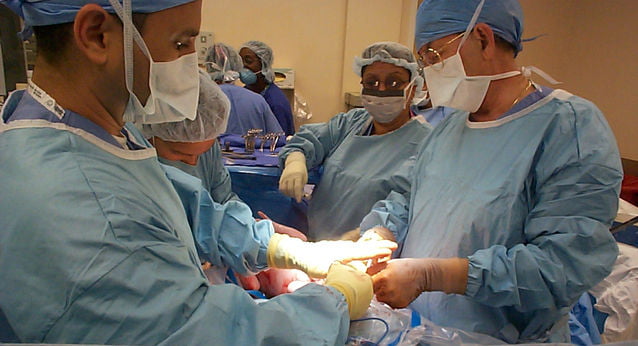What Are Some of the Most Dangerous Operations Out There?
Operation is a medical technique that involves making an opening with equipment and repairing or stopping illness in a live body. Surgery is performed for a variety of reasons. Some procedures can help ease or avoid pain, while others can help alleviate a condition or enhance bodily function. Similarly, some operations are performed to diagnose an underlying issue. A surgeon, for instance, would perform a biopsy, which entails taking a sample of tissue to inspect under a microscope. When performed on time, operations, such as heart surgery, have the potential to save your life.
However, if you’re considering surgery, your main worry must be the result: how you will feel and look once the procedure is completed. Planning for your operation, which includes recognizing the risks you’ll face and how to mitigate them, is critical to a successful recovery and outcome.
The majority of individuals are concerned about even minor surgical procedures. On the other hand, experts consider the following operations to be the most dangerous, as they can lead to significant serious health conditions that may result in death.
Brain Operation
Tumors, blood clots, aneurysms, epilepsy disease are among the disorders for brain surgery. A neurosurgeon carries it out with the assistance of a medical anesthesiologist who is well-versed in the forms of anesthetic, surveillance, and post-operative care necessary for such delicate procedures.
Types of Brain Operations
Several types of brain operations are performed around the head region depending on the affected part. The first type of brain surgery is neuroendoscopy, whereby a surgeon threads a thin tube referred to as an endoscope through openings such as the mouth or nose to reach and remove brain tissue. The endoscope is equipped with a special laser sensor, and the operation is carried out using instruments inserted through the endoscope. One kind of neuroendoscopy is endoscopic pituitary surgery. The endoscope is threaded through the nose to remove brain tumors and lesions around the pituitary gland, which is located directly beneath the bridge of the nose.
Decompression of the posterior fossa is another type of brain operation performed to treat the cerebellum and brainstem areas of the brain. To cure a Chiari malformation, for instance, the surgeon will make an opening at the back of the patient’s head and remove a little piece of bone from the bottom of the skull. This procedure frees up room for the cerebellum and decreases spinal cord compression.
However, the riskiest one is Craniotomy which is done as the last option. In this type of operation, a section of the skull is extracted to provide surgeons accessibility to the brain to eliminate a brain tumor, unusual tissue, blood clots, reduce the pressure after an accident or stroke, correct a brain hemorrhage, or heal other brain diseases. After surgery, the section of the skull is replaced.
Dangers Accompanied by Brain Operation
Every surgical treatment entails some level of risk. Surgery on the brain is an actual medical procedure that entails a higher level of danger. An allergic response to anesthesia can result in internal bleeding, deep vein thrombosis, and a coma. Infection at the incision site can cause speech disorders, sight, coordination, and stability.
Coronary Bypass Surgery
Coronary bypass surgery reroutes blood around a segment of your heart’s obstructed or partially clogged artery. A good blood artery from your leg or chest is taken and connected along each clogged artery in your heart during the treatment. Blood circulation to the cardiovascular system strengthens with the introduction of a new conduit.
Coronary bypass surgery does not cure the cardiac condition that triggered the clogs, such as atherosclerosis. It can, however, help with symptoms like chest discomfort and shortness of breath. This surgery can boost cardiovascular function and lower the chance of dying from heart disease in certain patients.
Reason For the Operation
If you suffer from a clogged artery in your heart, one therapy choice is coronary bypass surgery. A doctor might consider it when you experience significant chest discomfort due to a constriction of multiple arteries supplying your heart muscle, resulting in a lack of blood flow to the muscle even during mild exercise or during rest. Similarly, you can do it when you experience an arterial clog that cannot be remedied with a technique that momentarily widens the artery by introducing and inflating a small balloon.
Dangers
You may experience difficulties during or after your coronary bypass surgery since it is an open-heart treatment. Difficulties that may arise include Hemorrhaging, abnormal cardiac beat, and stroke. Complications are uncommon, although they might occur depending on your condition before surgery. If the operation is performed as an alternative treatment or if you have different medical diseases such as emphysema, renal illness, diabetes, or clogged arteries in your legs, your chance of hitches is increased.
Orthognathic Surgery
Jaw operations, also referred to as orthognathic surgery, improve the mandible by correcting defects in the primary dentition and realigning them. These changes may also help to boost your face look.
Surgery may be a possibility when you have jaw difficulties that cannot be remedied with Invisalign alone. In most situations, you will also wear braces on your teeth before going to surgery and while recovering from surgery until your teeth have fully healed and aligned. Your orthodontist can collaborate with oral and face physicians to create a treatment plan for you.
Reason For Orthognathic Surgery
Jaw surgery may be beneficial when you want to improve chewing by making biting and munching easier, correct any swallowing or speaking issues you may have, and in situations where excessive tooth wear and disintegration should be avoided.
Risks
When a skilled plastic and reconstructive surgeon is performed in consultation with an orthodontic, jaw surgery is typically safe. However, Double jaw surgery risks may include severe blood loss, nerve damage, jaw injury, mandible joint soreness, and difficulties with biting.

